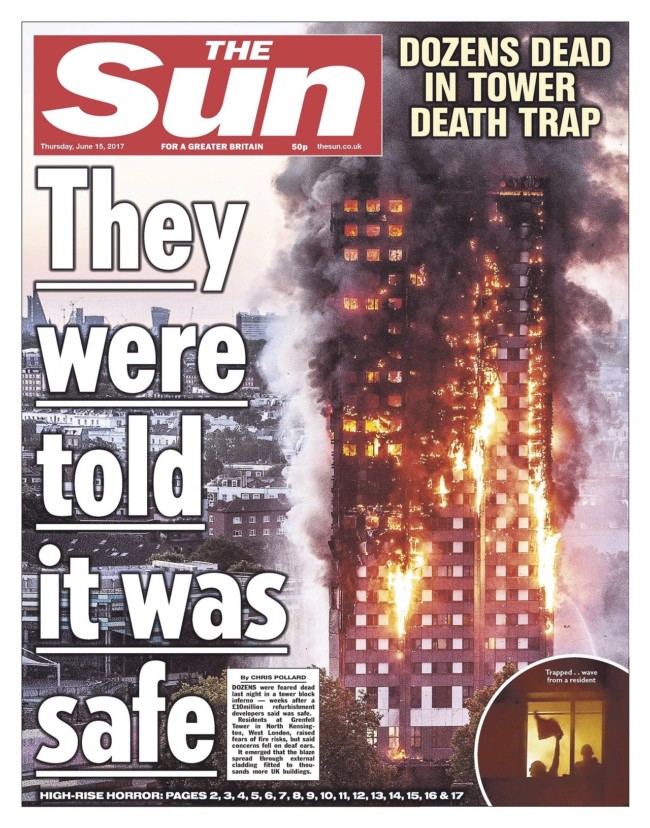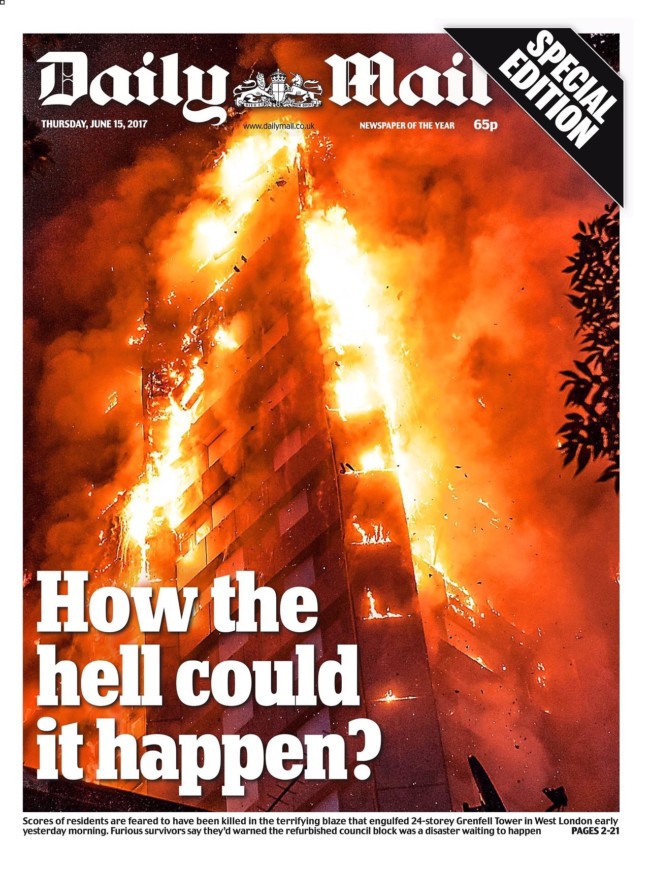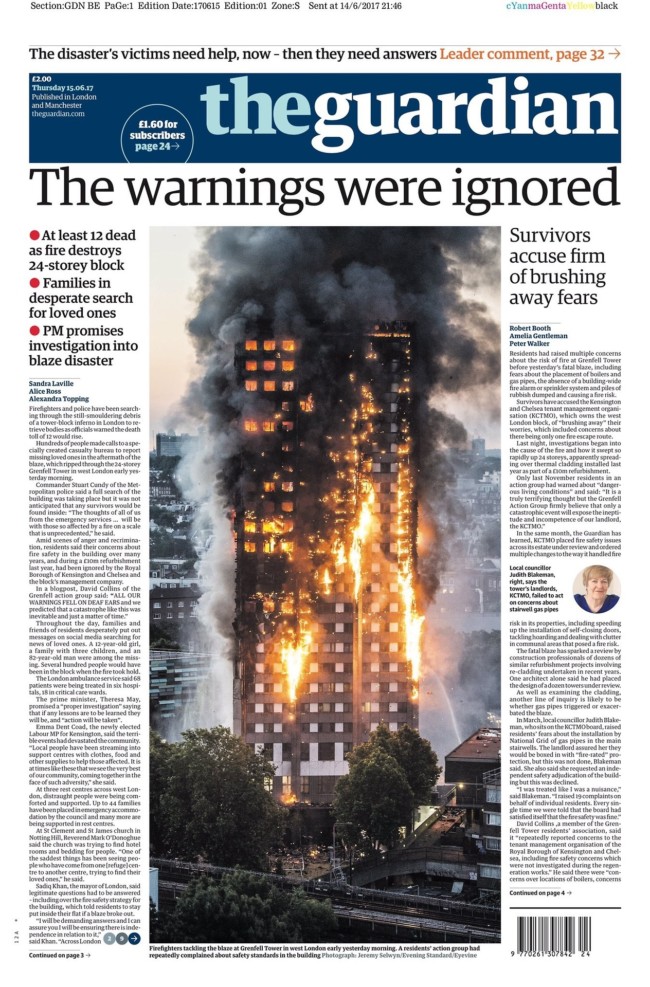After Grenfell: the rush to be the victims’ conscience
The horror at Grenfell Tower fire dominates the news. The fire shouldn’t happened. After fires at King’s Cross station and Bradford football ground took many lives, prevention became the watchword. A fire and building inspector told media “if there is a fire in any of these buildings, you’d expect it to be contained to an individual apartment. You wouldn’t expect it to spread in anything like the way, and certainly not in the time, that we’ve actually seen here.” But the level of prevention was inadequate.
The appalling scene at the 1974-built tower block in West London scars the mind. Volunteers are flocking to the site of the disaster. The stricken and bereaved are not echoes. We see them.
The faces of the dead pepper the front page like bullets holes. Most of us didn’t know them but, boy, can we feel the pain.
And it spreads. Already the newspapers are out of time. The present is fleeting. Twelve dead, says the Mirror’s cover. The figure is now 17. The newspapers try to report and make sense of the terrifying blaze. The Daily Mail produces a special edition with 21 pages, all led by the question “How the hell could it happen?” “Tragic. Horrific. Avoidable,” says the ‘i’ newspaper. The Sun has 18 pages of coverage, leading with “They were told it was safe”. “Warnings were ignored,” says the Guardian’s front page.
The papers’ questions can be distilled: who is to blame? Surely we should wait until we know the facts before naming and shaming any guilty parties, if there are any. If we trust the brave and heroic firefighters who race in as others run out, we must trust them to investigate fully. But in the void, many like to use the horror to score points. This should be avoided.
Nobel Prize winner Joseph Brodsky put it well in his 1998 address to students in Michigan:
“Of all the parts of your body, be most vigilant over your index finger, for it is blame-thirsty. A pointed finger is a victim’s logo – the opposite of the V-sign and a synonym for surrender. No matter how abominable your condition may be, try not to blame anything or anybody: history, the state, superiors, race, parents, the phase of the moon, childhood, toilet training, etc. The menu is vast and tedious, and this vastness and tedium alone should be offensive enough to set one’s intelligence against choosing from it. The moment that you place blame somewhere, you undermine your resolve to change anything; it could be argued even that that blame-thirsty finger oscillates as wildly as it does because the resolve was never great enough in the first place.”
But the rush to blame is contagious. The Tories did it. It’s part of their war on the poor. Labour did it. It’s their nannying, cod environmentalism, lack of home building and lowering of expectations. The media did it, with its assault on health and safety regulations and monstering the poor. Resist the urge to blame. Don’t rush to position yourself as the victims’ conscience. A disaster like Grenfell did not happen by chance and did not happen as the result of one mistake. It’s far more complex than that.
Brendan O’Neill notes:
If this mass burning of homes feels Dickensian, then so too does the hunt for the fat, evil, Tory-like landlord to hold responsible: that’s a Dickensian-style moralism that prefers the thrill of hating immoral individuals to the far harder task of looking at the economy and politics over the past 30 years and asking what might be done to improve both.
We don’t know all the names of the victims. But in this coming together of a community in the face of horror – a genuine community of people who live together, not individuals bunched together by ethnicity or age to further a divisive agenda – let’s take time to focus on those who have lost so much. They’re not looking to blame. They’re looking at how they can carry on. We should be circumspect. We should be kind, stoic and humane.
Posted: 15th, June 2017 | In: Key Posts, News Comment | TrackBack | Permalink





